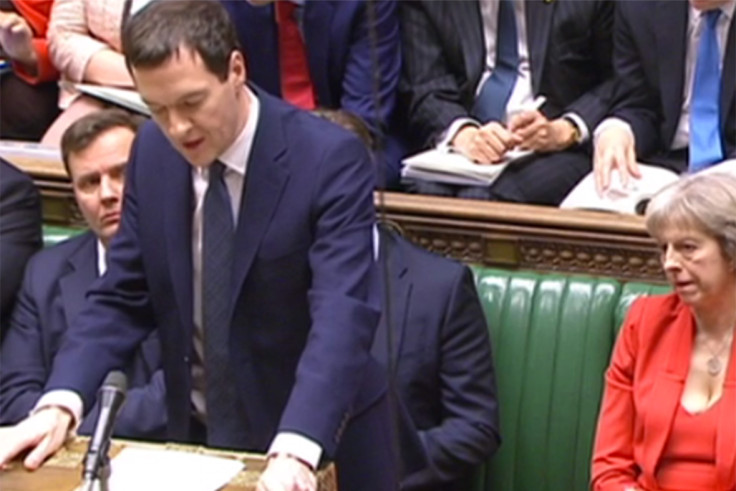Budget 2016: How to decode George Osborne's 'pitch for power'

Less a fiscal announcement and more a CV for Downing Street, this budget speech bore all the hallmarks of a personal pitch for power, not only from George Osborne but from many of the main players on the benches around him too.
Corbyn listened to Cameron's critique of his attire and shuffled into one of Islington's cooler tailoring establishments to emerge blinking in the Commons light in a jaunty nautical blue whistle complete with City-boy white shirt and a narrow red tie that hung like one of Gordon Gekko's braces.
When he rose to his feet for his reply to the budget it was also obvious he had swapped more than his taste in tailoring. Gone was his conciliatory tone, along with those 'questions from Gary and Sophia' that he used to frame his criticisms. Having scribbled notes wildly throughout Osborne's speech he reverted to 'angry, shouty headmaster' to deliver his lines, watched with a worryingly narrow-eyed scrutiny by shadow chancellor John McDonnell.
For the male lead Osborne, it was all about the body language. Gone was the signature 'startled colt' look of previous outings, with rolling darting or angry eyes, and in its place was a constant use of assured, emphatic hand gestures that included chopping, stabbing, table-thumping and capping as well as finger-pinch precision gestures that suggested every last penny had been costed and accounted for.
In between this array of assured confidence though, along with the constant 'join in the chorus' mantra 'the next generation' (used four times in the finale's sentence to subtly suggest that is the generation Osborne will be in charge of), Osborne had a tendency to slip back into a more anxious-looking hand-clasp, hand-wring or hand-wipe. He quickly policed these gestures, smacking a good old karate chop in there instead, but it was telling that some of the bravado might have been performed rather than genuine.
When Osborne and May appeared at the party conference they both performed an odd-looking 'leg-splay' on stage. Splaying is a sign of leadership and power (nightclub bouncers use it constantly) but in the crowded House there was little space for any legs akimbo shenanigans. So Osborne spoke of power with his gestures and way of rounding off each word chunk with a little catchphrase that might spin him into the top job.
Osborne kept his delivery straight but emphatic, although by the end he was engaging in some verbal victory rolls, suggesting he felt he had scored a surprising against-the-odds hit. There was less aplomb than in his previous outing, but he took one jokey swipe at Corbyn and when that got a laugh he showed re-booted confidence by threatening to abolish the Lib-Dems, which brought the house down.
On the build-up to key leadership battles both here and across in the US, given that the voters are clearly showing signs of spin-exhaustion and a loathing of choreographed, over-scripted styles, there is a growing trend for wannabe leaders to make their credentials known via their trips to the barber.
Osborne's darkening-by-the-day fringed crop is not only boyish enough to signal bonds with the 'yoof' voter but it has an air of 'Hail Caesar' about it in terms of leadership role modelling, in contrast with Cameron's Superman quiff that suggests competence and heroics, but a degree of isolation from the general public.
Boris's trip to the barber for his Brexit declaration showed he was taking things seriously enough to make the effort but the style suggested Edward Scissorhands had chopped at it blindfold: it was full of straight lines and sizzling with static but lacked any sense of overall direction.
Compare their looks with Trump's popinjay bouffant in the US. The look might suggest vanity and a lack of self-awareness, but his refusal to change it could signal stubbornness and a single-minded determination against the odds. Perhaps that's why it works in terms of winning votes: 'You just sit back comfortably and let me take over' is the subliminal message from that hair. You might not like it or want to copy it, but you can end up admitting that what you see is probably what you get.
Judi James is a leading expert on body language and behaviour.
© Copyright IBTimes 2025. All rights reserved.






















